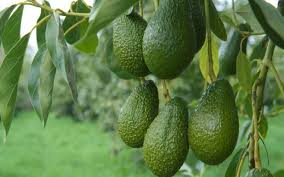STEP-BY-STEP GUIDE TO MAKING MILLIONS FROM HASS AVOCADO FARMING IN KENYA
Hass avocado farming is one of the most profitable agribusiness ventures in Kenya today. This variety is highly sought after in international markets, especially in Europe and China, making it a lucrative investment for farmers.
AGRIBUSINESS
Idea Pitch
3/12/20253 min read


Hass avocado farming is one of the most profitable agribusiness ventures in Kenya today. This variety is highly sought after in international markets, especially in Europe and China, making it a lucrative investment for farmers.
Why Invest in Hass Avocado Farming?
Hass avocados have overtaken traditional cash crops like coffee due to their strong demand. The Kenyan government has partnered with companies like Kakuzi to buy directly from farmers, eliminating middlemen and ensuring better profits.
The global avocado market has been expanding rapidly, with Kenya emerging as a top producer. Industry experts highlight that demand is growing faster than supply, creating a huge opportunity for Kenyan farmers.
China, in particular, is becoming a major consumer, importing about 70 container loads of avocados weekly. Experts predict this number could rise to 700 containers per week in the next 15 years, positioning Kenya as a key supplier.
Potential Returns from One Acre of Hass Avocado
A well-maintained acre of Hass avocado trees (about 150 trees) can yield impressive returns. Below is a breakdown of estimated earnings over a 10-year period, assuming a minimum price of Ksh.8 per fruit in the local market.
Year 1 & 2: Growth phase (no harvest)
Year 2: 50 fruits per tree – Ksh.60,000
Year 3: 200-250 fruits per tree – Ksh.240,000
Year 4: 400 fruits per tree – Ksh.480,000
Year 5: 800 fruits per tree – Ksh.900,000
Year 6: 1,000 fruits per tree – Ksh.1.08 million
Year 7: 1,100 fruits per tree – Ksh.1.3 million
Year 8: 1,300+ fruits per tree – Ksh.1.5 million
Year 9: 1,500+ fruits per tree – Ksh.1.8 million
Year 10: 1,750+ fruits per tree – Ksh.2 million
Total estimated returns in 10 years: Ksh.10 million
Crops You Can Intercrop with Hass Avocado in Kenya
Intercropping is a great way to maximize land use and increase earnings while your Hass avocado trees mature. Some of the best crops to intercrop with Hass avocado include:
Legumes (Beans, Peas, and Cowpeas) – These crops enrich the soil with nitrogen, which is beneficial for avocado growth.
Vegetables (Cabbage, Spinach, and Kales) – Since they have short growth cycles, they allow efficient land use without competing for nutrients.
Bananas – They provide shade and help retain moisture in the soil, creating a favorable microclimate for young avocado trees.
Passion Fruits – If planted along the edges of the farm, they utilize vertical space effectively while providing additional income.
Strawberries – These low-growing crops do not interfere with avocado trees and generate quick income before avocado trees mature.
Sweet Potatoes – They act as ground cover, reducing soil erosion and retaining moisture.
When intercropping, ensure that the crops do not compete heavily for nutrients and water. Also, avoid plants with deep root systems that may interfere with avocado tree roots.
Best Fertilizer for Hass Avocado
Applying the right fertilizer is essential for healthy growth and high yields. Here are the best fertilizers for Hass avocado farming:
Compost and Manure – Organic compost and well-decomposed manure improve soil structure, water retention, and nutrient availability.
Nitrogen-Based Fertilizers (CAN or Urea) – Avocados require nitrogen for vegetative growth. Apply nitrogen fertilizers moderately to promote healthy foliage.
Phosphorus Fertilizers (DAP or TSP) – These fertilizers help in root development, which is crucial for young avocado plants.
Potassium Fertilizers (Muriate of Potash – MOP or Sulfate of Potash – SOP) – Potassium enhances fruit quality, size, and resistance to diseases.
Micronutrients (Zinc, Boron, and Magnesium) – Deficiencies in these nutrients can affect flowering and fruit set. Foliar sprays or soil amendments with these minerals improve avocado health.
Fertilizer Application Schedule
At Planting: Apply phosphorus-rich fertilizers (DAP) to promote root growth.
After 3-6 Months: Use nitrogen-based fertilizers (CAN/Urea) for leafy growth.
Flowering Stage: Apply potassium-based fertilizers (MOP/SOP) to enhance fruit quality.
Throughout the Growth Cycle: Use compost and manure to improve soil health and maintain fertility.
Apply fertilizers based on soil test results to avoid over-fertilization, which can negatively impact tree health. A balanced approach combining organic matter with synthetic fertilizers ensures long-term productivity.
Essential Tips for Profitable Hass Avocado Farming in Kenya
Proper Land Preparation: Ensure well-drained soil and adequate spacing between trees.
Quality Seedlings: Purchase certified seedlings for better yield.
Thinning: Remove excess fruits to improve quality and size.
Pest and Disease Control: Use organic and approved pest control methods.
Market Access: Establish direct links with exporters and processors like Kakuzi.
Why Hass Avocados Are a Smart Investment
Long lifespan: A Hass avocado tree can produce for over 50 years.
Low maintenance: Requires minimal management apart from periodic pruning and harvesting.
Growing demand: The global avocado market is expanding, ensuring long-term profitability.
High returns: With proper management, farmers can earn millions from just one acre.
Do you have idle land? This could be your chance to turn it into a long-term income source. Don’t wait—start your Hass avocado farming journey today and tap into this billion-dollar industry!
